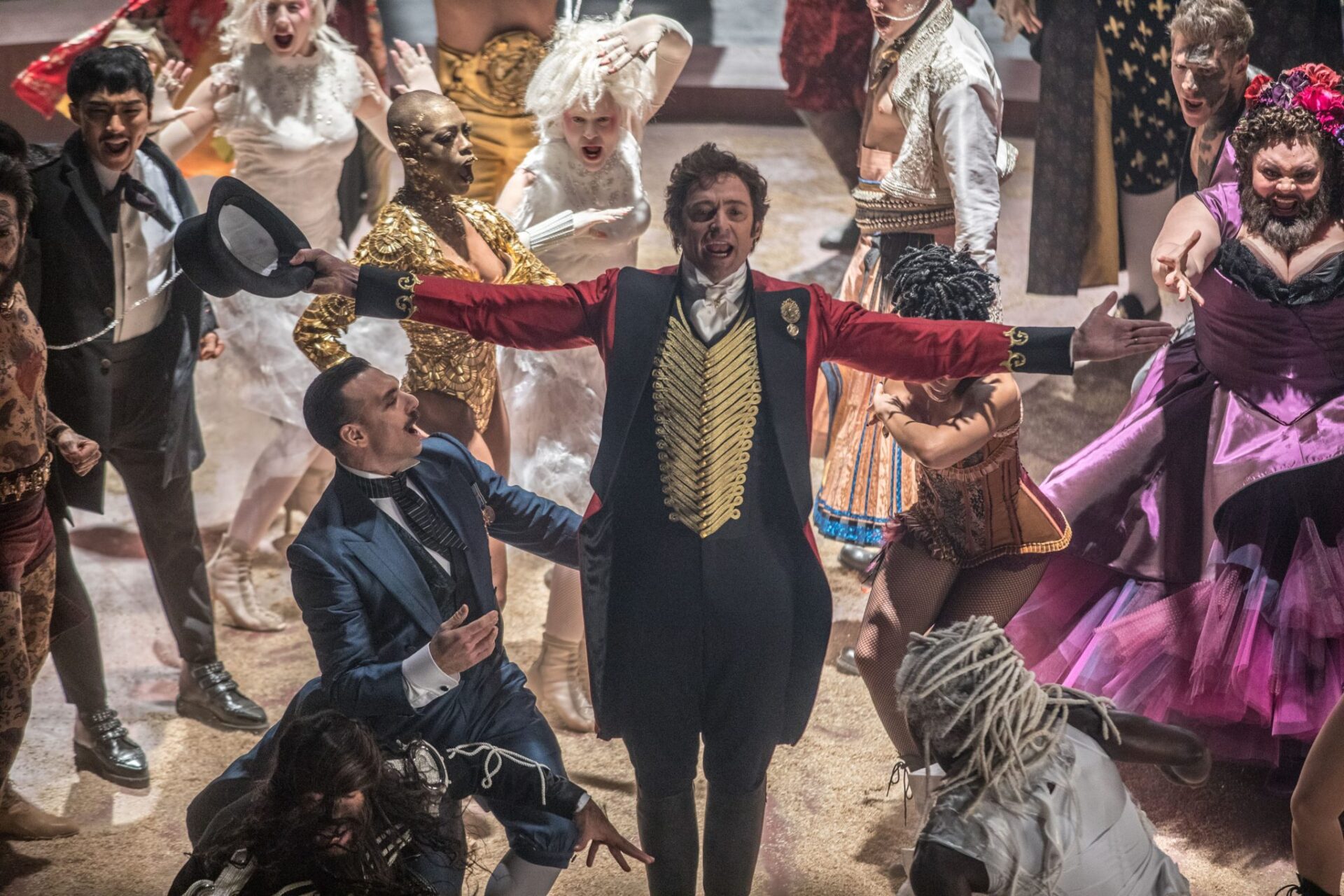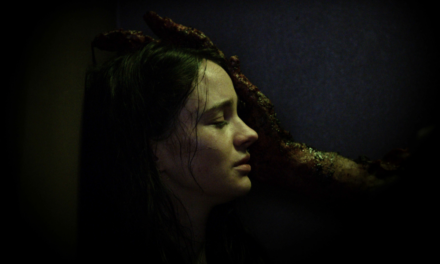Let’s make one thing clear: Making a feel-good musical about P.T. Barnum is a really, really bad idea. This isn’t to say that making a musical about the circus is doomed to failure; on the contrary, the theatrics and suspension of disbelief inherent in the live performative arts would make circus spectacle a near-ideal setting for a musical. But to make P.T. Barnum the centerpiece of such a film is gaudy and crass, a celebration of a man who built his name and reputation through the exploitation and labor of the disabled and outcast, as well as the abuse of animals for the sake of grotesque amusements. Ignoring this is The Greatest Showman’s greatest stumbling block, causing an otherwise competent musical to falter in its desire to glorify a bad man to the detriment of all else.
Hugh Jackman stars as Barnum in a narrative that tries to paint the man as a besmirched folk hero, a poor boy who one day received kindness from a fellow homeless person with a facial deformity, instilling in him an unspoken bond with the so-called freaks of the world. As a smooth-talking adult, Barnum marries his rich childhood sweetheart (Michelle Williams), has two daughters, and struggles to provide for them the wealth he wishes he’d always had. After taking out a fraudulent loan to start his own museum of curiosities, Barnum starts recruiting the bizarre and fantastical to act as attractions for people unaccustomed to oddities.
The film portrays Barnum is a lovable swindler, a man who talks fast and loose with a smile and sincerity that supposedly wins us over, but making Barnum the focal point of the narrative leaves every other character to suffer as a result. No character feels as multi-dimensional and fully realized as Barnum, so all they are left to do is revolve around him like satellites, only existing in service to Barnum’s weak arc about overcoming his insecurities. This rings especially hollow when seen in relation to the assemblage of performers who are barely given the courtesy of names in the script. Platitudes are often shared about the sense of self-worth Barnum brought to these people by offering them community and an expressive space, but Barnum isn’t shown to have relationships or camaraderie with the troupe. Rather, he’s just their charismatic boss, and the character consequently steals the show from those who formed the backbone of Barnum’s commercial success.
As for the music and choreography, they are serviceable as musicals are concerned. This isn’t a soundtrack that’s likely to recruit theater geeks to memorize the tunes, but the songs are fine and there is some very well shot dance choreography that quite frankly deserved a better film. In particular, a romantic duet between Barnum’s business partner (Zac Efron) and a trapeze artist (Zendaya) is a gorgeous display, and it exemplifies how their star-crossed subplot is the closest the film comes to having anything to say besides touting Barnum’s supposed greatness.
I suspect that many audiences will have a decent, if forgettable, time with The Greatest Showman. Much like a circus, it’s a lot of flashing spectacle and fanciful supposition without much in the way of depth or extrinsic purpose. However, much like P.T. Barnum’s circus in particular, the film is founded on exploiting and minimizing the efforts of the very people it claims to glamorize, in actuality only glorifying the con artist in the titular role. A serious look at P.T. Barnum’s life requires acknowledgment of the ways in which his success manifested. The Greatest Showman is therefore just as much of a fraud as he was.













